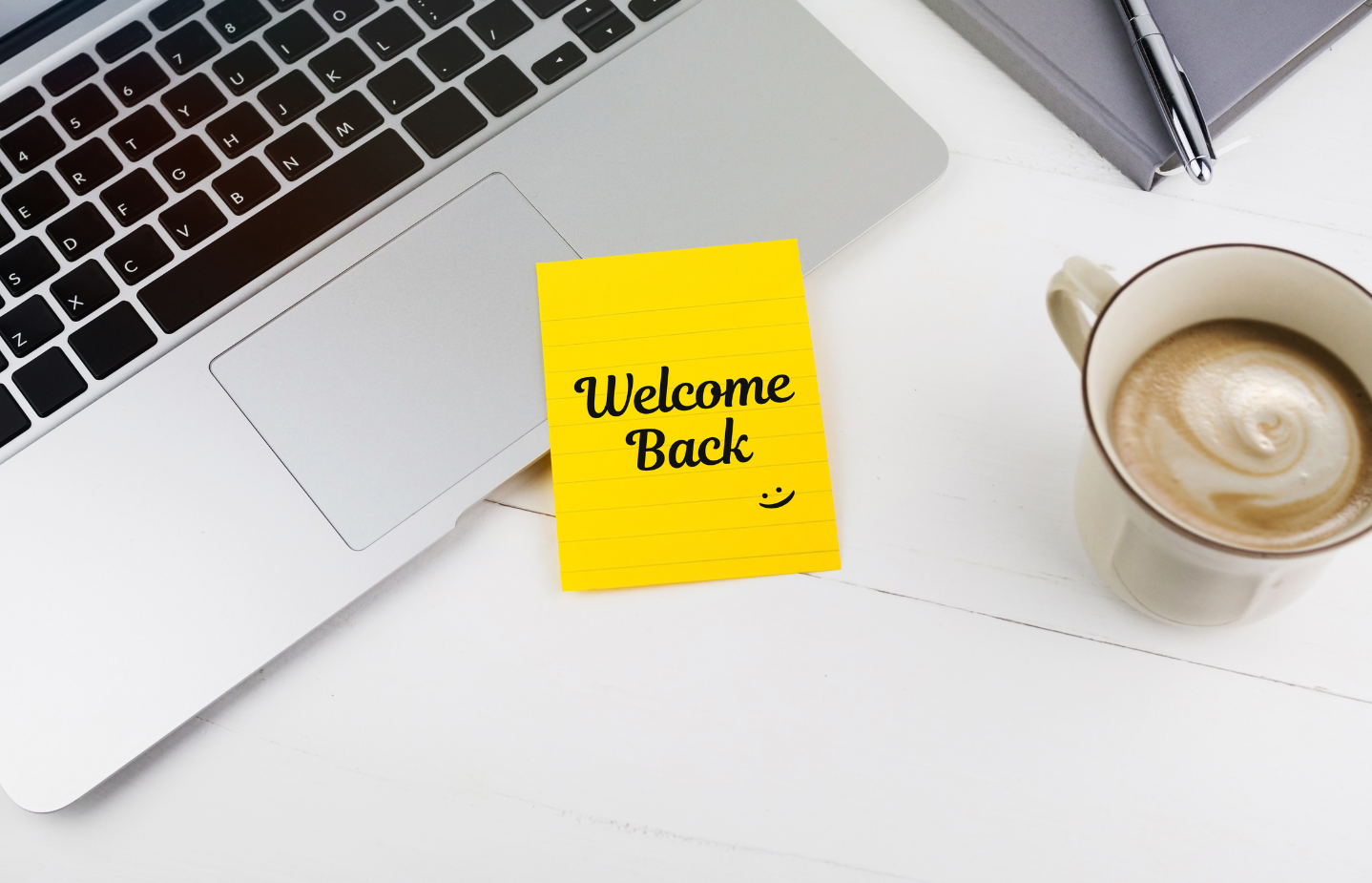It’s often said that we spend a significant portion of our lives at work, and for legal professionals, this commitment is even more pronounced due to the substantial investment in their careers. Finding the ideal career fit is crucial for overall happiness and well-being, particularly concerning factors like compensation, professional satisfaction, and workplace culture. Recent trends underscore a noticeable shift in candidate priorities in these areas.
However, navigating the job search process can be challenging, as success in the initial stages often hinges on factors beyond individual control. Many individuals struggle to find the necessary guidance to navigate this journey effectively – whether they’re freshly qualified and looking for their first legal role, or indeed a seasoned professional who may not have been on active job market for several decades.
What’s more, ATS and CV-scanning tech, competing candidates and evolving industry demands are just some of the challenges that meet candidates at the screening stage and while a well-written CV can significantly improve success rate, the following one presents a challenge that tends to bring most right out of their comfort zone, that being the oft-dreaded interview.
Nerve-wracking, daunting, and often a stumbling block for many candidates (or so it is perceived) it forces you to sell yourself convincingly and succinctly to demonstrate that you are quite literally the right person for the job – a skill not easy to master in the legal space, but one that need not be difficult to learn.
Here we look at what makes a great interview, how to make that first impression memorable, and how to use the meeting to your advantage as well with expert legal interview tips that work.
Fail To Prep At Your Peril
Starting with the golden rule of all interviews – your preparation should leave no stone unturned in covering all bases. You should want to go into the interview well-aware and well-prepared for what impression you intend to make on the hiring manager.
To this end, your first objective should be to think about what you intend to get out of the meeting. Yes, you are there to impress and prove your candidacy but how you do this through your answers and overall communication will differ somewhat from interview to interview. To get started ask yourself the following:
Q: What kind of first impression do I want to give my employer? If the job description asks for an adept problem-solver with the ability to lead a project, then your first port of call is to ensure that you’re ready to showcase those characteristics during the meeting.
Q: What are the key messages I want to communicate – whether verbally or non-verbally? If your interviewer could only go away from the meeting remembering one thing about you what do you want it to be? Is it the expertise or wealth of experience you have in your field or perhaps the drive you have to continue finding ways to deliver in your role? How are you going to make those messages stick?
While these can seem tricky to figure out at first, they don’t need to be – as there is a myriad of resources now available at your fingertips, and even more so when you utilise the services of a specialist legal recruiter. Their knowledge and experience in supporting candidates at this juncture of the process, as well as the profile and requirements of the employer, can prove instrumental in making your preparation foolproof and equip you with the know-how you need to nail it on the big day.
Know Your Audience
When it comes to preparation, be prepared to get specific. By delving into the finer details of the position in question and gaining insights into what success looks like in the role, you’ll equip yourself with the knowledge to articulate how your skills and experiences align perfectly with the firm’s needs. This proactive approach not only showcases your preparedness but also demonstrates a genuine interest in the role and the law firm. Key areas deserving your attention during this research phase include:
The firm’s brand and personality – are they corporate or have more of a family feel?
Their vision, mission, and values as well as any terms, words, or phrases that communicate this most effectively. A good place to find this is on their website, on an About Us or similar titled page where their mission statement and value are outlined
Interviewer profile: This is something your recruitment consultant will be able to help you with – although a simple LinkedIn search will give you a head start not just on their own area of expertise, but any content/posts they publish which may indicate their personality, their passions and their impact on the sector more generally
Reviews: Seek out reviews on the firm on the likes of Glassdoor company to get a gauge of what it’s like to work at the firm. Some individuals also leave reviews about the legal interview experience itself – invaluable to get an idea of what to expect
Digital Footprint: Company news or updates via press releases on industry websites and articles – in particular any recent big wins achieved by the business that has been publicised online. If you’re able to show you are as invested in the firm’s success as they are, you will significantly improve your chances of landing a killer first impression.
It’s worth taking into consideration the type of interview you can expect as well, as this will guide your preparation accordingly. Again, a recruitment consultant can help in this regard, as they can give you pointers and tips on what the hiring manager will be expecting and how best to prepare if you will be required to give any presentations or take any assessments.
First Impressions at Your Legal Interview; Making Them Count
As the famous saying by Oscar Wilde goes, “You never get a second chance to make a good first impression.”
Whilst this may not be true in all cases, it remains a great way to capture the importance of first impressions and a good pointer for any candidate aiming to impress in an interview. With only a few seconds afforded to make your mark upon first meeting the interviewer, the level of your suitability is often communicated before the legal interview even starts. As such, everything else about you, from your dress code to your body language and mannerisms, should exude confidence and enthusiasm that leaves as strong an impression as possible.
Other key tips to ensure you make a positive first impression:
Dress Code- Check with your recruitment consultant or directly with the interviewer to determine the appropriate attire. When in doubt, it’s always safer to dress conservatively and professionally.
Body Language- Stand up straight with good posture. Approach with a smile, which conveys warmth and friendliness. Offer a handshake confidently; make sure it’s firm but not overpowering.
Communication- Speak clearly and confidently. Pay attention to your tone and pace of speech to convey enthusiasm and interest in the role.
Mannerisms- Be mindful of your gestures and facial expressions. They should align with your words and reflect positivity and engagement.
Awareness- Be mindful of other members of the team you meet or speak to on the day – the Receptionist for example may be the first person you speak to and the last!
By focusing on these aspects, you can ensure that your first impression is not only positive but also sets the stage for a successful interview.
Approach Legal Interview Questions With Confidence
While it’s not possible to prepare for every single question that can come up in a legal interview, there is still much you can do to ensure you are ready for what may be thrown at you. Starting with the questions themselves, make a list of common interview questions relevant to the role that you are likely to be asked, and use the below guide when crafting your answers for each one.
Use examples in your answers that specifically point to how you demonstrated the key characteristics they are looking for. The job description is a great reference point in this regard, as it will help to tailor your answers to the requirements of the job in question, no matter what question you are asked.
Don’t be thrown off by complicated questions: The question “What’s your biggest weakness?” can be one of the most overwhelming for candidates. A good way to answer this is to think about something skills-wise you’re struggling with but show how you’re working to improve. For instance, maybe nerves tend to get to you when doing public presentations, but you’ve been taking regular speaking classes in your own time to overcome your anxiety and improve your delivery.
Make a note of key numbers and statistics that can back up the statements and examples in your answers. Numbers, percentages, and other quantitative data make a real impact in interviews and add greater credibility to your accomplishments as they are actual quantifiable results that speak for them.
Remember that you will likely also be asked why you applied for this firm and your role in particular, and your research into the business will be key in crafting a good answer to this question. Try to highlight some key facts about the company how you as a person and a professional relate to them, and how the role allows you to do something that both you and the firm value in your professional life.
Once you’ve written out your answers, have a friend or colleague (or even your recruitment professional) go through these with you in a mock interview. It may seem a bit overkill, but it can help to boost your confidence and smoothen your delivery.
Don’t Be Put Off By Competency Based Questions
Competency-based questions often start with the phrase: “Tell us about a time when”. They’re designed to give the firm insight into how you react to specific circumstances. To prepare for these kinds of behavioural questions, it’s good practice know your way around the “STAR” technique.
The STAR method asks you to take an example of impressive behaviour from your past and arrange it into a particular structure. The acronym encourages interviewees to:
- Situation: Describe the circumstances relevant to the question.
- Task: Outline the details of your responsibility in that situation.
- Action: Explain the action steps that you took to address these challenges.
- Results: Talk about what your actions achieved.
Using these four steps to shape your anecdote will make it easier to deliver a highly focused and relevant answer.
Projecting Confidence in Your Legal Interview
Equally as crucial as thorough preparation, confidence plays a pivotal role in bringing out your best self on interview day and should be considered an integral part of your readiness. While interviews typically emphasise verbal communication, how you deliver your responses often matters more than the content itself. Many candidates find managing nerves challenging, yet overcoming this hurdle is less daunting with the right mindset. Effective preparation is essential, but seizing control of your interview experience involves additional strategies.
A few ways to increase your confidence before the big day include:
Have a go-to response ready when you need a moment to think. If you feel you’re prone to or fear blanking at the most inconvenient of times, then this can help to steady the nerves in the moment. Something like “That’s an excellent question. Let me think about that…” can be useful in buying yourself the time you need to get going again.
Using visualisation to mentally rehearse: A useful tip to implement when rehearsing your answers is to do so while visualising in as vivid a manner as possible, what the interview experience might be like. Remember, that this is intended to be a simulation of the real thing, and as such questions shouldn’t be rushed, and professional attire is a must when practising. If there are any parts of the visualised interview that you’re particularly nervous about, practice them with a friend.
Relaxation techniques such as meditation and mindfulness are also worth learning for those who find anxiety a real issue in high-pressure moments, or their daily lives, and help to avoid getting stuck in their head and ground them in the present moment. That said, it should not be a substitute for a good night’s rest, as you want to be performing at max capacity on the day. Lack of sleep will only make that much harder to achieve.
Practising positive thinking: Negativity can get the better of us at times. If you’ve yet to experience the breakthrough you’ve long been waiting for in your job search, you may be getting a sense of déjà vu at this junction and perhaps even write yourself off before the big day arrives, expecting the worst of yourself in front of the interviewer. Try not to think this way as it will kill any ounce of confidence you have left in your ability. Instead, look back at the answers you crafted to your competency-based question, as that is what you should be judging yourself on as a professional. Even if you lack something to give for those answers, the point is that your suitability for the role in question is evidenced by the hard work and commitment you produced to get to this point – whether that be through education or experience. When that belief resonates in your answers it will start to spill over to your mannerisms and body language.
Mastering Non-Verbal Communication
Your body language will be another way that the interviewer will asses how confident and experienced you come across, and what they are more likely to remember, especially if they are in stark contrast to what you or your CV says. As overall communication is majorly non-verbal, the little things certainly matter in this instance whether that be a simple handshake or sitting posture. Fail to make the right impact with it and you could find yourself losing out on a great opportunity.
Some tips to bear in mind:
Smile! I know you might be full of nerves and smiling is a great icebreaker for all concerned so use it to your advantage
Concentrate on posture: Keep your chin up and your spine straight whether you’re sitting or standing. Lean forward slightly in your chair to indicate interest and avoid crossing your arms or fiddling with things on the desk in front of you.
Practice a firm handshake: During the handshake, make sure that you’re looking at the person, and giving them a genuine smile. Show them that you’re happy to be there.
Suppress any restless habits: Avoid crossing and uncrossing your legs, cracking your knuckles, tapping your foot, or biting your nails. All of these small quirks indicate nerves and may be deemed as impolite.
Make eye contact: Make eye contact during your interview, rather than continually staring at the clock or down at your CV. However, be careful not to stare continuously at the hiring manager, as this can make them uncomfortable. Balance it out by making eye contact as you listen to and respond to questions, but let your eyes wander occasionally.
Use your hands: If you’re not sure what to do with your hands, then use them to gesture while you’re speaking. Hand movements can show passion during a conversation. Just make sure that they’re not so aggressive that they distract from what you’re saying!
Show Your Ambition
Talking about your future during your legal interview demonstrates a genuine dedication to forging a path of progression for your career within the business. It also helps you understand what opportunities might come your way. Share what you’re looking for in the role and ask about the company’s development options for its employees.
You may want to ask:
- Is there a mentorship programme where you can learn from other leaders and further build your skill set?
- Does the company offer plenty of training solutions and chances to learn new things?
- How does the business approach things like development plans?
- Will you get regular one-on-one interviews to assess your progress towards your goals?
- Are there opportunities for professional development when you get into this role? What might the next step look like for you?
- What happened to the last person that held this job? Did they move into a bigger role or switch companies?
- What are your thoughts about lateral movement? Do employees have an opportunity to explore other projects in different roles?
Approach The Legal Interview As A Two-Way Street
A big thing to remember with any interview is that they are more than just an evaluation by the hiring manager. It’s a great opportunity for you to envision your future with a potential employer and assess whether the role aligns with your aspirations. It goes beyond simply looking for a job; you are actively exploring whether the company culture and dynamics resonate with your professional ethos.
Preparing intelligent, well-thought-out questions shows the interviewer that you’re thoroughly prepared and that you understand what exactly you’re getting into. Your questions show that you’re interested in the position and that you have ambitions to excel in your new job.
Some potential questions include:
Q: Can you tell me more about the responsibilities of this job: If the day-to-day responsibilities have already been discussed in the job description, you can skip this question. However, if they’re vague, this is your opportunity to determine exactly what you’ll need to do in your new role.
Q: How can someone excel in this role? This question often leads to valuable information about how the business measures things like success and performance in the workplace. You can even ask how you’ll be assessed going forward, and how regularly you can expect to get feedback.
Q: Where do you see the company heading in the next five years? This question shows an interest in and points to a commitment to being in it for the long-term, and your interest in its progress.
Q: What do you expect me to achieve in this role during the first 30 days, 60 days, or 90 days? This gives you an overview of the goals you’ll be pursuing when you begin your new job.
Q: Can you describe the culture of your company? It’s important to know if you’ll fit well with your team members. A brief description of company culture will show you whether your personality is a match for the business dynamic.
Q: What do you like best about working for this company? Asking for your interviewer’s personal experience of working within the company is an excellent insight into what you can expect from your new employment.
Q: What are the biggest challenges facing the firm or that specific department today? This question shows an eagerness to seize the opportunity and assist the firm in overcoming any difficulties. You might even discover areas in which your specific skills can save the day.
Q: What is the typical career path for someone who takes this role? This question will give you an overview of how career advancement works in your chosen organisation. It may also show you whether you can expect some regular support and training when working towards your career goals.
Q: What are the next steps in the interview process? This question indicates that you’re eager to move to the next stage with the business. It will also give you an insight into the timeline you can expect to follow for hiring. You’ll know when you can follow up appropriately, without pestering the company.
Q: Is there anything about my CV or background that makes you question my fit for this role? Here, you’re demonstrating a commitment to making the right impression as a candidate. This question also means that you have an opportunity to respond to possible concerns.
Remember, there are some questions to avoid asking in a job interview too. For instance, you won’t need to ask what the business does if you’ve done your research. Additionally, it’s a good idea not to ask about benefits and changing things straight away.
If you are looking for a new role due to dissatisfaction in your current one, you want to consider more strategically focused questions too, and use the interview as an opportunity to conduct your own due diligence of sorts.
Interviews can be stressful and nerve-wracking experiences. However, with the right preparation strategy in place (and legal interview tips to help you) you’ll feel more confident walking into the initial meeting with the company that’s right for you. Using the tips above, and some support from your legal recruitment specialist, you can ensure that you’re ready to make the right impression in an interview – and crucially get one step closer to getting that dream role.
Clayton Legal has over 20 years experience helping candidates in the legal sector to take the next step in their careers. Our work doesn’t just involve matching legal professionals with roles – we’ll work with you to make sure your professional profile stands out in the market, that you feel fully prepared for your interview, and that your preferences and requirements are met every step of the way.
If you are thinking of taking that next step, we can help. Call us on 01772 259 121 or email us here.













